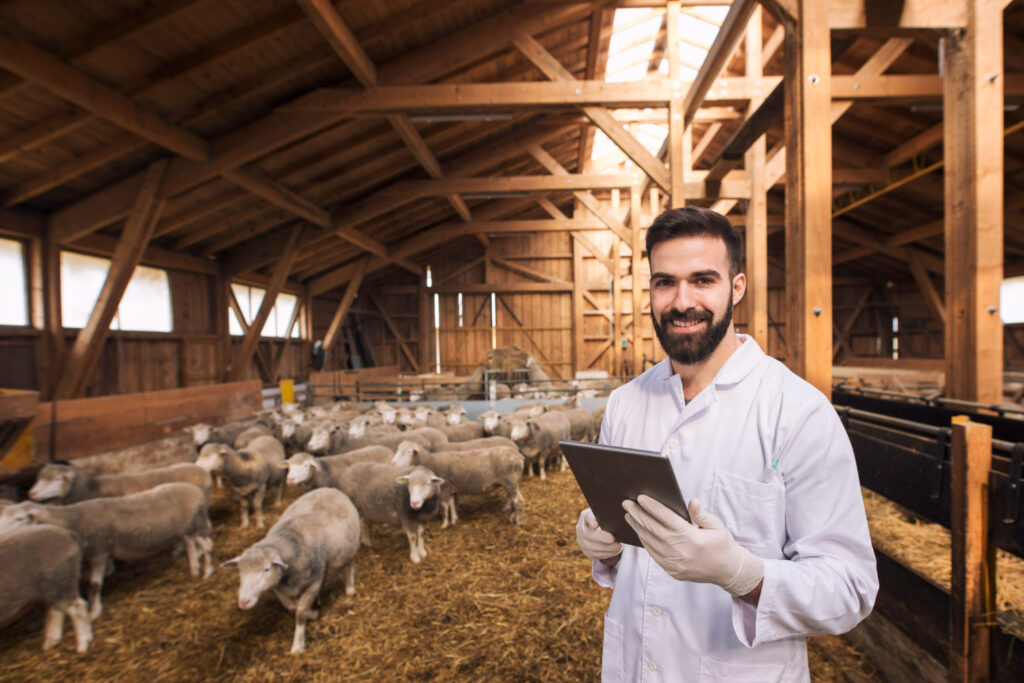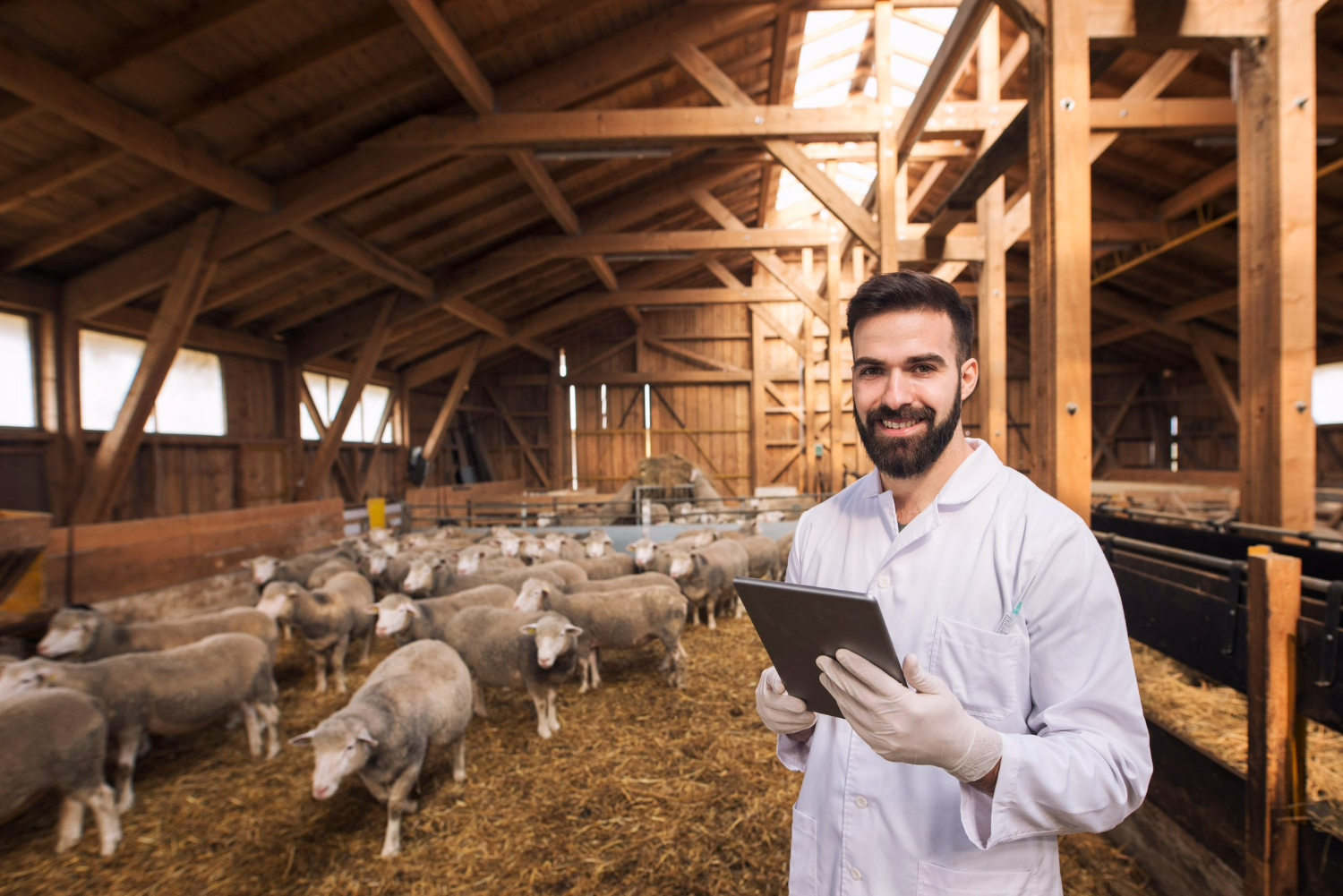Goat farming, a traditional and time-tested agricultural practice, has gained significant traction in recent years, emerging as a viable and profitable venture. Goats, known for their adaptability, hardiness, and diverse range of products, offer a promising avenue for aspiring farmers and entrepreneurs. Whether you’re a seasoned agriculturalist or a curious newcomer, goat farming presents a rewarding opportunity to venture into the world of sustainable agriculture and reap the benefits of this versatile livestock.

Demystifying Goat Farming
Goat farming encompasses the raising and management of goats for various purposes, including milk production, meat production, fiber production, and companionship. Goats are remarkably adaptable creatures, thriving in diverse environments and consuming a wide range of vegetation. Their minimal feed requirements and ability to convert low-quality forage into nutritious products make them an ideal choice for resource-constrained regions.
Embarking on Your Goat Farming Journey
1. Assess Your Suitability
Before diving headfirst into goat farming, it’s crucial to evaluate your suitability for this venture. Consider your passion for agriculture, willingness to learn and adapt, and ability to commit to the daily care and management of goats. Additionally, assess your available land, resources, and financial capacity to support a goat farming operation.
2. Develop a Comprehensive Business Plan
A well-crafted business plan serves as a roadmap for your goat farming venture. It outlines your objectives, strategies, target market, financial projections, and risk mitigation plans. A detailed business plan helps you make informed decisions, secure funding, and attract potential partners.
3. Choose the Right Breed of Goats
Goat breeds vary in terms of their temperament, milk production capacity, meat quality, and fiber characteristics. Select breeds that align with your specific goals, whether it’s dairy production, meat production, or fiber production. Popular Indian goat breeds include Saanen, Alpine, Jamnapari, and Black Bengal.
4. Establish a Suitable Habitat
Goats require a clean, well-ventilated, and predator-proof shelter. Ensure adequate space for movement, access to fresh water, and a protected area for feeding. Proper housing is essential for maintaining goat health and productivity.
5. Provide Nutritious Feed
Goats are primarily herbivores, consuming a variety of grasses, legumes, and tree leaves. Provide a balanced diet that meets their nutritional requirements, including protein, carbohydrates, vitamins, and minerals. Supplement their diet with mineral licks to ensure they receive essential micronutrients.
6. Implement Effective Health Management Practices
Regularly monitor your goats for signs of illness or injury. Implement preventive measures such as vaccinations, deworming, and parasite control to maintain herd health. Consult a veterinarian for prompt diagnosis and treatment of any health concerns.
7. Explore Marketing Opportunities
Identify potential markets for your goat products, whether it’s milk, meat, fiber, or live goats. Network with local markets, supermarkets, restaurants, and direct consumers. Consider establishing your own brand and online presence to expand your market reach.
8. Embrace Sustainable Practices
Adopt sustainable practices to minimize your environmental impact. Utilize natural resources efficiently, manage waste responsibly, and promote regenerative agriculture practices. Sustainable goat farming contributes to the preservation of ecosystems and long-term productivity.
Conclusion
Goat farming, with its versatility and sustainability, offers a rewarding and fulfilling path for those seeking a fulfilling career in agriculture. By embracing thorough research, expert guidance, effective marketing, and disciplined financial management, you can navigate the path to success in goat farming, contributing to your livelihood, the environment, and the community you serve.
Frequently Asked Questions (FAQs)
How much does it cost to start a goat farm?
The cost of starting a goat farm varies depending on factors such as land acquisition, housing construction, breed selection, feed costs, and veterinary care. A modest setup with a few goats can be initiated with relatively low capital, while larger-scale operations may require significant investment.
Details
What are the benefits of goat farming?
Goat farming offers a multitude of benefits, including:
- Diversified income sources: Goats provide various products, such as milk, meat, fiber, and manure, offering multiple revenue streams.
- Resource efficiency: Goats are adaptable and consume a wide range of vegetation, making them suitable for resource-constrained environments.
- Environmental sustainability: Goat farming promotes sustainable land management practices and contributes to ecosystem resilience.
- Community development: Goat farming can foster economic opportunities in rural communities and enhance livelihoods.
Details
How can I ensure the success of my goat farming venture?
To increase your chances of success in goat farming:
- Conduct thorough research: Gain in-depth knowledge about goat breeds, husbandry practices, and market dynamics.
- Seek expert guidance: Consult experienced goat farmers or agricultural extension services for advice and support.
- Maintain financial discipline: Manage your expenses effectively and track your financial performance regularly.
What are the challenges of goat farming?
Goat farming, like any agricultural enterprise, poses certain challenges. These include:
- Predation: Goats are susceptible to predation by foxes, coyotes, and other wild animals. Implementing effective fencing and predator control measures is crucial.
- Diseases and Parasites: Goats can contract various diseases and parasites that affect their health and productivity. Regular monitoring, preventive measures, and prompt veterinary care are essential for disease management.
- Market fluctuations: Goat product prices can fluctuate due to supply and demand dynamics. Diversifying your product offerings and establishing strong market connections can help mitigate market risks.
- Land and Resource Availability: Access to adequate land, water, and feed resources is crucial for successful goat farming. Assess your resource availability carefully and consider sustainable land management practices.
What are the legal requirements for goat farming?
Legal requirements for goat farming vary depending on your location. It’s essential to familiarize yourself with local regulations regarding animal husbandry, health permits, and waste management. Obtaining necessary licenses and permits ensures compliance with legal standards and protects your business interests.
